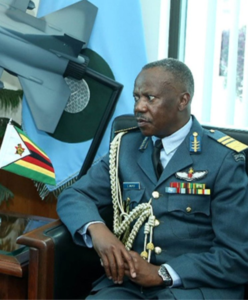TRAGIC DEATH OF DR. NEMBAWARE: A WAKE-UP CALL FOR ZIMBABWE’S CRUMBLING HEALTHCARE SYSTEM

In a heart-wrenching incident that has jolted Zimbabwe, the unfortunate death of Dr. Mthabisi Nembaware has exposed the alarming deficiencies in the country’s healthcare system. Dr. Nembaware, a committed Zimbabwean doctor, tragically lost his life in a car accident in Mutare, a demise hastened by the lack of an Intensive Care Unit (ICU) at the local hospital. This event has reignited fury over the perilous state of the nation’s healthcare infrastructure.
Mutare General Hospital, despite being a referral center for the eastern province of Manicaland, was found critically wanting when it came to handling such a severe medical emergency. The untimely passing of Dr. Nembaware has highlighted the stark inadequacies in Zimbabwe’s hospitals, characterized by a dire shortage of essential medical equipment, drugs, and sometimes, even basic painkillers.
A significant hurdle in Zimbabwe’s healthcare sector is the ongoing brain drain. Many skilled doctors and specialists are emigrating in search of better prospects, leaving behind a gaping void in the medical workforce. This exodus has further aggravated the already grim situation, with the country struggling to cope with an acute shortage of healthcare professionals.
Zimbabwe’s protracted economic crisis has further crippled its healthcare system. Public healthcare facilities are battling to provide even the most basic medical care. This dire reality was a focal point in the recent election, with citizens urging the government to urgently reform the decaying healthcare infrastructure.
The tragic fate of Dr. Nembaware, as narrated by journalist Barnabus Thondhlana, underscores the shocking incapabilities of Mutare Provincial Hospital in responding to critical emergencies. Dr. Nembaware, who had dedicatedly served the rural community of Hauna, met with a road accident while traveling to Mutare. He sustained severe traumatic brain injuries and was initially stabilized at Mutare Hospital.
Regrettably, the lack of a functional ICU and a city-to-city ambulance service in Mutare proved to be insurmountable barriers in providing him the specialized care he required. Adding to the tragedy, despite having an expensive helicopter ambulance, the state failed to airlift him to Harare for further treatment.
In a desperate attempt to save Dr. Nembaware, his family managed to arrange a private air ambulance service at a cost of $5,000. However, their efforts were futile as the non-functional landing lights at Mutare airport prevented the air ambulance’s departure. This series of unfortunate events culminated in the loss of a dedicated medical professional, starkly highlighting the crisis in Zimbabwe’s healthcare system.
Dr. Nembaware’s death is a grim reflection of the broader issues plaguing Zimbabwe’s healthcare. The country possesses the necessary resources to establish a functional healthcare system. Yet, public funds are continually mismanaged and diverted, depriving citizens of vital services like healthcare.
Millions of dollars are squandered each year on luxury vehicles for political elites, money that could be invested in revitalizing essential public services such as healthcare. It is a poignant irony that Dr. Nembaware, who devoted his life to saving others, was let down by the very healthcare system he served in his hour of need.
As Zimbabwe mourns Dr. Nembaware, his passing serves as a somber reminder that the collapsing healthcare system is not only a threat to its citizens’ lives but also hinders the nation’s potential for a better future. Urgent and comprehensive reforms are necessary to rectify the systemic issues crippling the healthcare infrastructure. Dr. Nembaware’s untimely demise should act as a catalyst for change, motivating the nation to demand accountability and to invest in a healthcare system that genuinely prioritizes its people. May he rest in peace, and may his legacy inspire a transformation in Zimbabwe’s healthcare sector.



